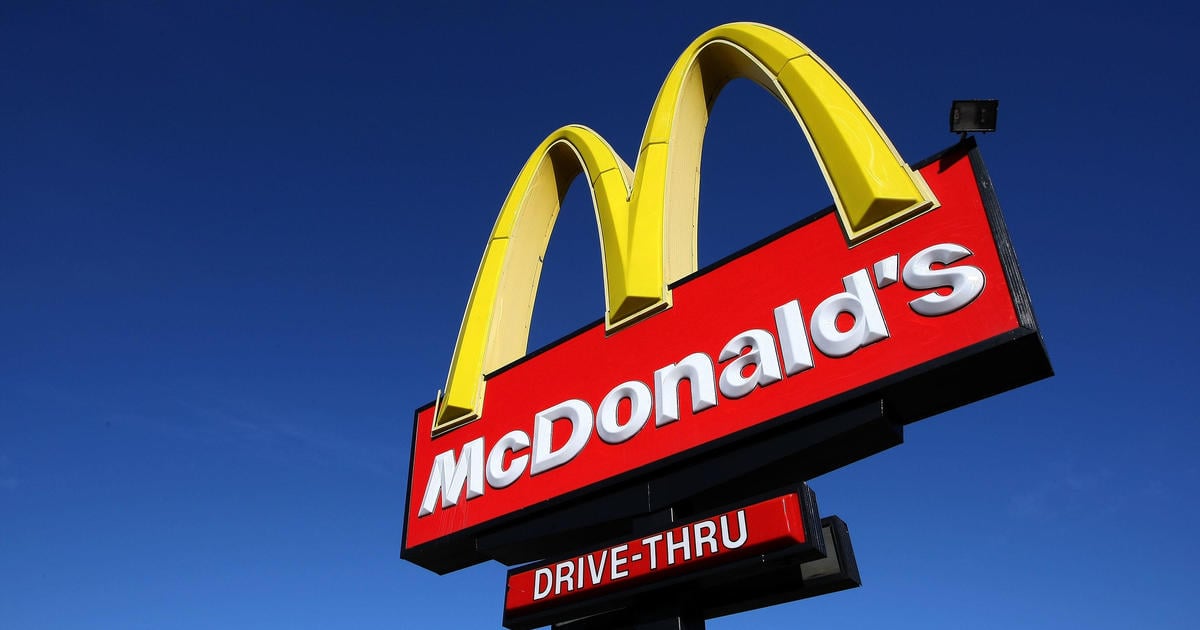Kevin Roberts remembers when he could get a bacon cheeseburger, fries and a drink from Five Guys for $10. But that was years ago. When the Virginia high school teacher recently visited the fast-food chain, the food alone without a beverage cost double that amount.
Roberts, 38, now only gets fast food “as a rare treat,” he told CBS MoneyWatch. “Nothing has made me cook at home more than fast-food prices.”
Roberts is hardly alone. Many consumers are expressing frustration at the surge in fast-food prices, which are starting to scare off budget-conscious customers.
A January poll by consulting firm Revenue Management Solutions found that about 25% of people who make under $50,000 were cutting back on fast food, pointing to cost as a concern.



Your 1200 calorie figure is about right for a “combo” with large drink and fries and a quarter pounder at McD.
That’s about the same as half a fairly modest frozen pizza and a soda. Which would be a plausible “cooking at home” solution that I’ve seen people do, and that’s assuming they stop at half the pizza. Similar story for a lot of frozen “air fryer” fare, they pour from the bag until they have “about a bowl’s worth” and that’s usually about the same calories as the food part of the fast food. They read the “nutrition facts” and see “200 calories” and miss the part where there’s “20 servings a bag” and eat what the packager counted as 6 servings.
Also, that’s only the calorie counting, a TV dinner will have even more added sugars and sodium than the fast food meal.
Had to look that up. So…Totino’s party pizza (which I eat every once in a while if I’m being a total slob)…It’s 700 calories for the whole thing, plus throw in a 16oz pepsi and you’re still at only 900 calories. (Which I only drink diet these days)
It doesn’t sound like a big difference, but that’s still usually 100-300 calories less than fast food. They’re both shit for you, but if you get to the brass tacks, those 100-200 calories per meal add up quickly.
That’s 20 extra minutes of light exercise per meal.
(The other thing…I looked up the cheap frozen dinners…they’re surprisingly not bad. Banquet, which you can get for 1-2$ usually, is only 400 calories. The higher priced ones (“Big Man”) things are only 600-700. Again, terrible food, but still healthier and cheaper than McDonald’s)
Anyway…the point…It’d be hard for me to make something as unhealthy as McDonald’s at home. I’ve done it (Eggs Benedict for example), but it took a lot of work.
I used a Digorno’s pizza as reference. On Totino’s, I was looking more toward how I’ve seen family members eat Pizza Rolls, where they have a cereal bowl full and that’s fast food territory.
As I said on some of the TV Dinners, they may eek by with fewer calories than a McD meal if you get large fries (small fries bring it down to “comparable”), but the added sugars and sodium make them in some select ways worse.
I’d suggest that the sort of person to be selective about their home diet when faced with fast food is likely to get the better options. I think the “biggie size everything” crowd will have bad at home eating habits, and more careful are likely to do things like skip fries and drink and maybe have a smaller sandwich.
I just have the general impression that people think the choices are:
When I’m reasonably sure the people that go all in on unhealthy fast food are filling bowls of pizza rolls and pouring from the 2 liter soda bottles, which is hardly better.
Undoubtedly it is easier to eat healthy at home (portion control, having the right ingredients), but just not sure “once they can’t afford fast food they’ll be on the road to healthier eating” will work out, as has been commonly expressed in this thread.
It’s a reasonable assumption. But hell…I think even a bucket of pizza rolls is still slightly healthier for you than a super sized value meal.
I don’t disagree with you. But I think even the the most unholy compulsive eater will do a little better if they can get away from fast foods.
Soda…whoever drinks Soda over 17 probably has bigger issues than counting calories.
Whatever people like doing at 16 is likely going to persist to what they like at 32 or 64.
To the extent people should be discouraged from soda (and other added sugar drinks), it needs to pretty much be the case from the onset, not just a fact of “growing up”.
I’ve seen children raised on relatively healthy food and drink from the onset and it’s much less of an uphill battle for them to happily eat healthy as they grow up. They actually like the healthy stuff rather than forcing themselves to eat unhappily because they know it’s the right thing.